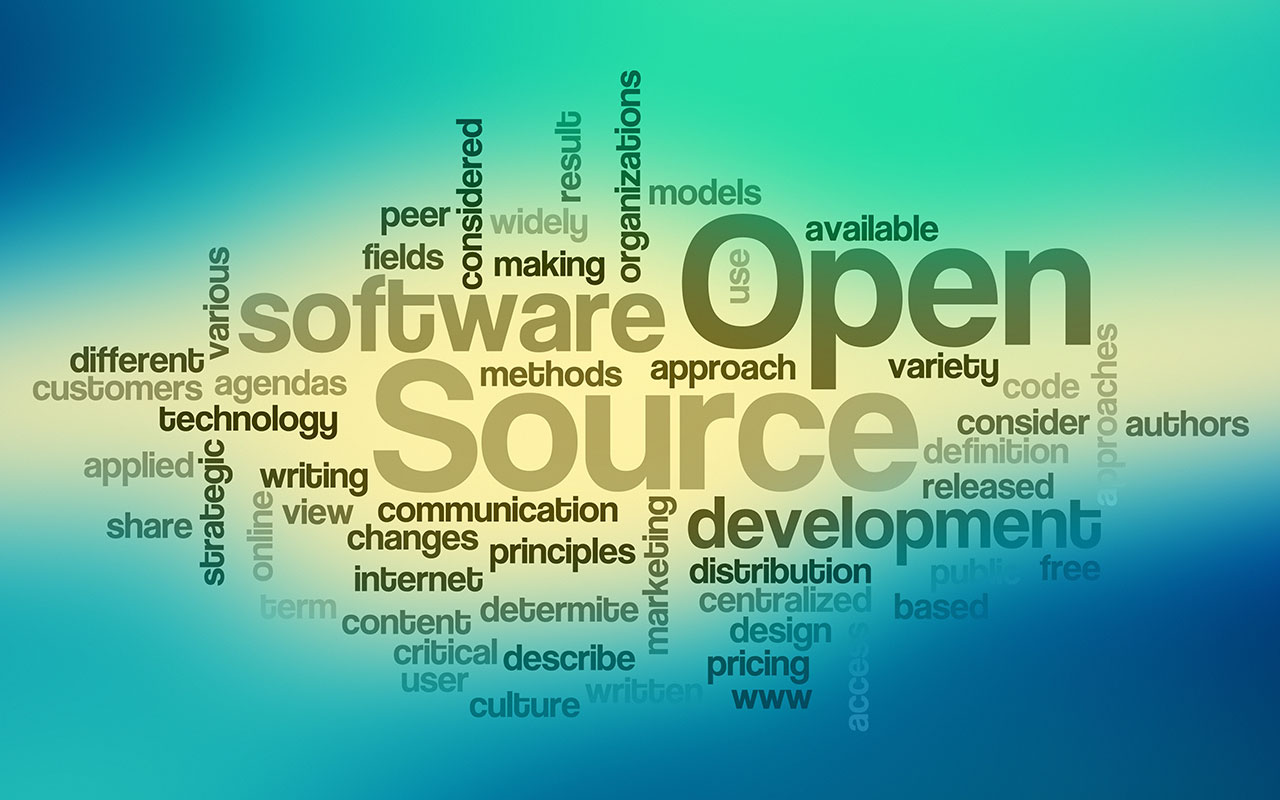“Basically, of course, FOSS (Free and Open Source Software) in government is always welcome first.” – Reading this statement in a blog post a few days ago, I involuntarily caught myself nodding my head automatically. Yes, of course I am convinced that open source software in administration is to be welcomed, but what is this conviction all about? Where do I get the certainty that I am expressing such a statement as truth?
First of all is that no one prevents me from making this statement. I have the incredible privilege of living in a country with a democratic constitution that does not sanction me for expressing my opinions. I.e. I exist in a system of democratic structures, so this is not about software per se, but about the effect that a certain type of software brings.
Purchasing in the public sector
Administrations are executive organs in this system, which have certain order and communication structures. In order to be able to act, these administrations need not only humans, who can accomplish administrative activities, but also most diverse physical materials and tools. When purchasing (procuring) any kind of work equipment and materials – i.e., also software (ICT infrastructure) – administrative employees do not act autonomously; instead, the federal, state and local governments are bound by legal norms such as public procurement law. Procurement law stipulates, among other things, that procurement must be economical (the contract is awarded to the most cost-effective bid) and subject to the principle of competition, i.e., no arbitrary award may be made to a single provider. Even if there is clear criticism to be levelled at the procurement law itself and the associated tendering procedures, the basic idea is not bad because it follows democratic principles. In principle, every company in Germany has the opportunity to offer its products and services to the public sector. Every administration can change providers if requirements change.
Handout on the use of open source in administrations
What is quite simple for easily exchangeable products, e.g. office supplies, is completely different for IT. Software in particular, even standard software, is not just a product, but at the same time creates structures and workflows that themselves in turn generate dependencies. For the evaluation and tendering of IT services, the BMI published a kind of guide for IT procurers in administrations in 2018, which addresses the use of open source software and also refers to the recommendation of the Open Source Business Alliance (OSBA) “Handreichung zur Nutzung der EVB-IT* beim Einsatz von Open Source Software”. So, at first glance, it seems possible to develop tenders for open source software.
Change in administrations?!
Similar to organizational structures in large corporations, it is difficult to implement fundamental changes in administrations. They act on the basis of laws, regulations, guidelines, etc., which are adapted again and again. What happens rather rarely is that fundamental things are changed because the framework conditions and society change. However, as far as the principles on which the logic of awarding contracts is based (GWB Act against Restraints of Competition, §97, 1-6) are concerned, it would be time to take a closer and more contemporary look at them:
(1) Public contracts and concessions shall be awarded on the basis of competition and transparent procedures. The principles of economic efficiency and proportionality shall be observed.
In the public sector, economic efficiency predominantly means that the contract is awarded to the cheapest provider. Is it really cost efficient to conclude license agreements with providers of proprietary software? When licenses have to be renewed year after year at a cost? Every update, every new feature, every change to the software is under the sovereignty (and thus also the pricing sovereignty) of the provider?
(2) Participants in a procurement procedure must be treated equally unless unequal treatment is expressly required or permitted by this law.
How is equal treatment to be ensured when the procurement is phrased in terms of an ” all-in-one” solution? Or if the entity issuing the invitation to tender has little or no detailed knowledge of open source software?
(3) Aspects of quality and innovation, as well as social and environmental aspects, are taken into account in awarding contracts in accordance with this part.
Innovation in administrations means, among other things, interoperability and digitization. What is the quality of a combination of different software solutions that makes administrations more digital if they cannot communicate with each other or if interfaces have to be created first? How social is it when (proprietary) solutions cannot offer complete data security for the citizens concerned?
(4) The interests of small and medium-sized enterprises must be given priority when awarding public contracts. (…)
Where are medium-sized interests taken into account when software and operating systems from the U.S. provider Microsoft are used in administrations throughout the country?
(5) For sending, receiving, forwarding and storing data in a procurement procedure, contracting authorities and companies shall, as a matter of principle, use electronic means in accordance with the ordinances issued on the basis of Section 113.
How is this principle compatible with point (1)? The procedure can only be transparent if the software used acts transparently. If the administration uses proprietary software for the award process, it can by no means provide transparency with regard to point (5).
(6) Companies have a right to expect that the provisions governing the award process are complied with.
This should go without saying, but good to see it mentioned again.
In reconsidering the above principles, I conclude that open source software should be given priority over proprietary software in the public sector and would like to concur with OSBA’s reasoning:
“…This is due, on the one hand, of course, to the often considerable advantages in terms of transparency and flexibility and thus, of course, long-term economic efficiency. The use of open source software also makes it possible to participate to a greater extent in the development of the code or to adapt it to one’s own needs. The associated value creation then no longer necessarily has to be carried out by the original manufacturer, but is in many more cases also possible locally and thus associated with a regional economic structure and innovation promotion. In addition, one-time publicly funded development efforts can be used multiple times for the same tasks by different authorities. On the other hand, open source provides a completely uncomplicated basis for independent monitoring for possible security gaps or backdoors, an aspect that has become enormously important, especially in light of the current discussion about the digital sovereignty of the state.”
Consistently thought through to the end, this means that open source software is always the more sustainable, economical, sovereign and democratic solution for administrations. Therefore, it would have to be detached from the above-mentioned logic of procurement. It remains to be seen whether the newly created Center for Digital Sovereignty (ZenDiS) will devote itself to this task.
Ideally, however, administrations should also see themselves as part of the whole and think and act together with all stakeholders from the open source context (service providers, manufacturers, community, interest groups, associations, etc.). After all, open source is not a delivery service.
Read more:
*Supplementary contract conditions-IT: Public invitations to tender are drawn up on the basis of various legal regulations such as VOL (Vergabe- und Vertragsordnung für Leistungen). Supplementary contract conditions can be consulted for special requirements.


